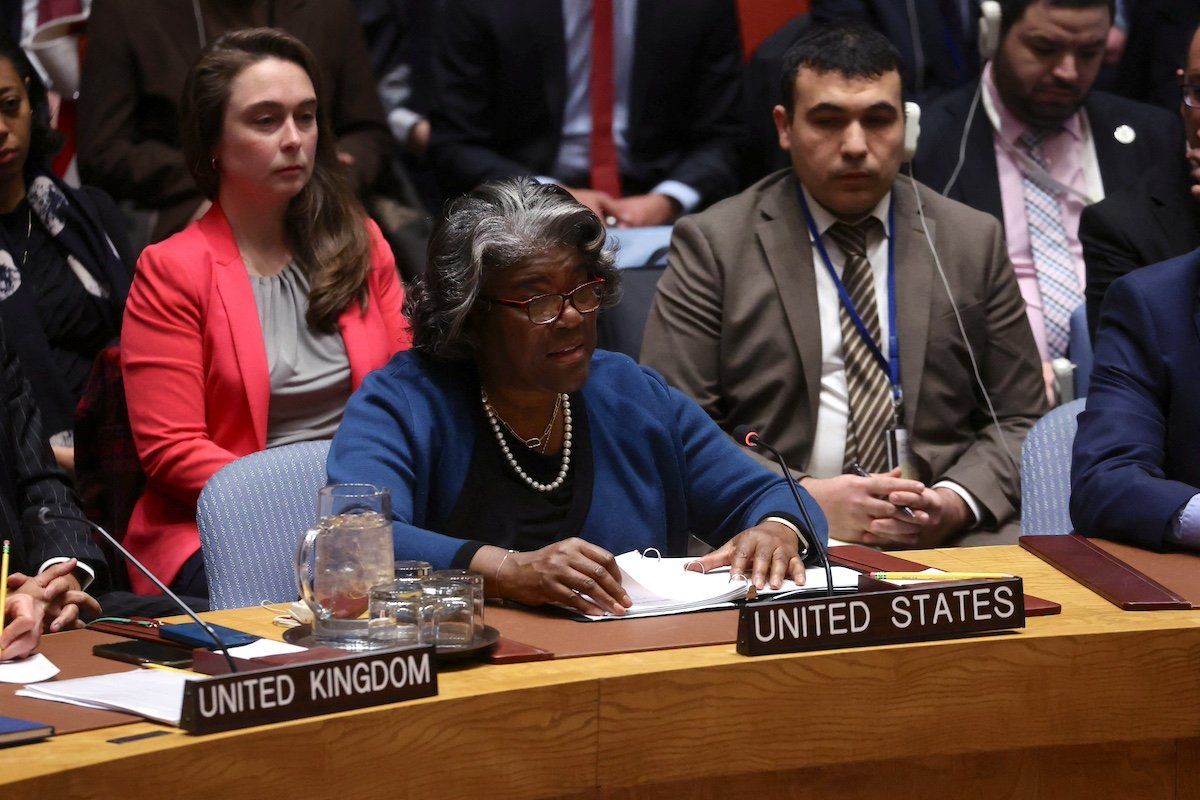Yet another Gaza cease-fire resolution failed in the UN Security Council today – though the US was not responsible for blocking it this time. China and Russia vetoed a US-sponsored resolution urging for “an immediate and sustained cease-fire” in the Israel-Hamas war in connection with a hostage deal.
Beijing and Moscow’s ambassadors seemingly took issue with the language of the resolution, contending it didn’t go far enough to demand a cease-fire. The US resolution “sets up conditions for a ceasefire, which is no different from giving a green light to continued killings, which is unacceptable,” said Zhang Jun, China’s ambassador to the UN.
Russia's ambassador, Vassily Nebenzia, said Moscow supported a cease-fire but decried the US resolution as a “hypocritical spectacle.” Nebenzia said it was “exceedingly politicized … to help to play to the voters, to throw them a bone in the form of some kind of a mention of a cease-fire in Gaza.”
The US, Israel’s top ally, previously vetoed three cease-fire resolutions. The latest resolution signaled a shift in Washington’s stance on the war, as the Biden administration faces domestic pressure over its support for Israel and butts heads with Benjamin Netanyahu’s government over plans to invade Rafah – a city filled with displaced Palestinians.
Playing politics? The US accused Russia and China, two of its top adversaries, of tanking the resolution for political reasons. "Russia and China simply did not want to vote for a resolution that was penned by the United States,” said US Ambassador to the UN Linda Thomas-Greenfield.
What’s next? Elected members of the UNSC have penned an alternative resolution that demands an immediate cease-fire, which could be brought to a vote on Friday afternoon. The US has signaled it will block the measure.
Meanwhile, Secretary of State Antony Blinken traveled to Israel on Friday as part of ongoing efforts to secure a new truce. Netanyahu remained defiant during the visit, telling Blinken that Israel can't defeat Hamas without going into Rafah and that it will move forward with the operation without US support if necessary.
